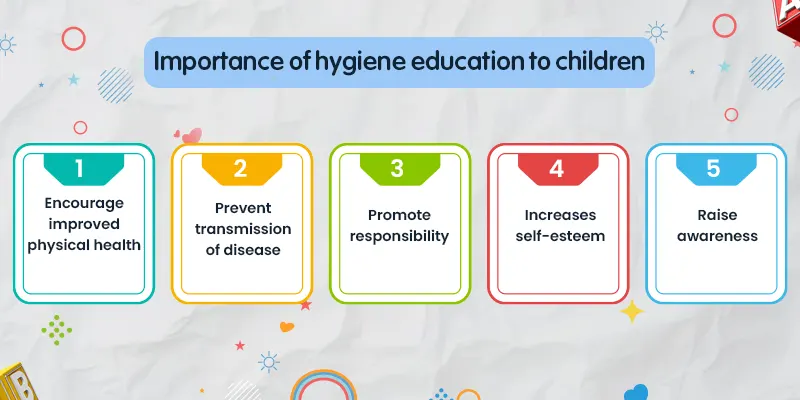Did you wash your hands? This is a common concern parents have, which they need to ask countless times to their kids. But what if your child does not require a reminder?
Building good hygiene is not just a personal habit. From washing hands to covering the mouth during coughing and sneezing, these small actions play a crucial role in keeping children healthy. That’s why teaching hygiene is more important than ever.
Since toddlers are naturally eager and keen to learn, it is the ideal time to introduce proper hygiene practices into their daily routine, which lasts a lifetime.
A top kindergarten in Kolkata, Little Scholars, pays special attention to personal cleanliness among the children. The teachers educate the children about good hygiene habits through playful activities like games, songs and storytelling. For them, promoting daily sanitary education is not merely through instructions. They encourage active participation and promote small victories to make good hygiene feel like an achievement rather than a task.
Importance Of Hygiene Education To Children
The implementation of proper hygiene practices in early childhood empowers the kids to maintain good health, prevent the spread of diseases and help them lead a safe life. Take a look at some of the main reasons why hygiene education is important.
- Encourage improved physical health: Education on hygiene, such as handwashing and oral care, prevents diseases such as flu, cavities and infections, to which they are more prone.
- Prevent transmission of disease: When children are taught about the spread of germs, they become cautious of their actions and take precautions to ensure a clean environment for everyone.
- Promote responsibility: Habits such as proper use of the toilet paper or wearing clean clothes develop a sense of responsibility to maintain good habits on their own.
- Increases self-esteem: A child who is able to keep himself clean feels confident enough to interact with other children.
- Raise awareness: Children who are conscious of their personal habits are more likely to be aware of how to keep themselves healthy.

Teaching About Hygiene To Young Children
Now that we have understood the importance of good hygiene, let’s look at some of the ways through which Little Scholars, a top kindergarten in Kolkata, teaches these habits to make the children interested.
- Creating a routine: Children learn best when they follow a consistent routine. For example, there are allotted times which are structured to include hygiene-related tasks like washing hands before meals, brushing teeth twice a day and cleaning up the toys.
- Storytelling: Stories make learning about hygiene more interesting to kids. The teachers at Little Scholars, a top kindergarten in Kolkata, use books and posters that feature sneezing with tissues, proper use of soap and water and hair as well as nail care to illustrate their importance and keep them engaged.
- Songs and rhymes: Most of the kindergartens incorporate catchy songs and rhymes to make hygiene education enjoyable. Musical elements help children remember the steps easily and also encourage them to participate.
- Role play: The teachers at Little Scholars turn hygiene lessons into role-play activities to demonstrate the correct ways to maintain cleanliness. The children are also asked to pretend to be doctors or nurses to engage in scenarios where they can teach others.
- Group activities: Group activities include games, drawing or experimenting help children learn from each other. When they see their peers practising good hygiene, they try to imitate the behaviour.
Conclusion
While schools play an important role in building healthy sanitary practices, parental involvement is also necessary. At Little Scholars, a top kindergarten in Kolkata, regular communication with parents is done to ensure consistency between home and school routines. Workshops and newsletters are shared to keep them informed about the child’s development.


